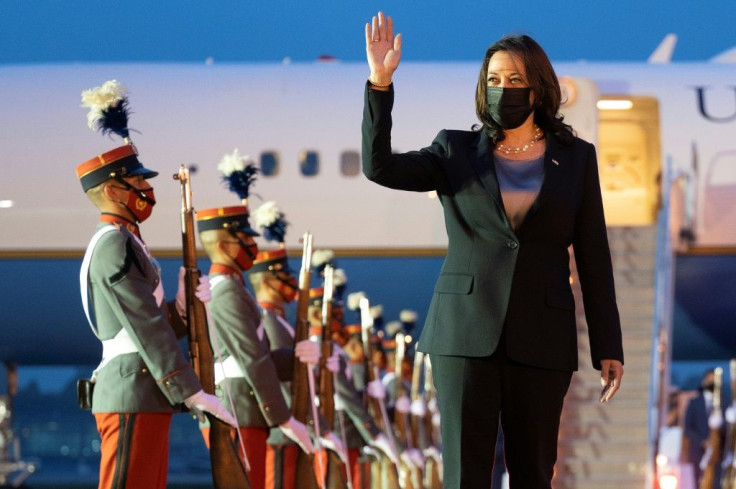Kamala Harris Announces $1.2 Billion In Private Funding To Boost Central America In 'Call To Action'
Vice President Kamala Harris announced new commitments from the private sector on Monday that seek to strengthen infrastructure in Central America and help curb undocumented immigration to the U.S.
The hope is to address the root causes of mass migration, discrimination and poverty. Harris launched what the White House calls the “Call to Action” in May.
Businesses and social enterprises have made commitments to the region, such as CARE International, Cargill, Grupo Mariposa, Parkdale Mills, PepsiCo, JDE Peet’s and PriceSmart. Mastercard, Microsoft and Nespresso announced their commitments in May though they plan to take further action.
According to a White House fact sheet, since the vice president’s launch of Call to Action, businesses and social enterprises have invested $1.2 billion. The launch was in consultation with the Partnership for Central America (PCA), an independent nonprofit that is helping mobilize the effort.
Harris announced the new commitments during a virtual event hosted by the State Department and the Chamber of Commerce in collaboration with the PCA. The event drew over 1,300 businesses, governments and civil society leaders from Central America and the U.S.

The Biden administration announced on Dec. 2 that it would comply with a Supreme Court order to resume the Donald Trump-era "Remain in Mexico" policy, or the Migrant Protection Protocol (MPP). The controversial policy forces asylum seekers to remain in Mexico until their court date, which subjects them to rape, murder, torture and kidnappings. Human Rights First reported 1,500 of these cases since February.
Those most affected by the order are the sick or elderly, and those on the LGBTQIA2+ spectrums. President Joe Biden has called the MPP policy inhumane and axed it until the Supreme Court decision to reimplement it.
MPP started in 2019 to deter migrants from seeking asylum in the U.S., though Biden's Department of Homeland Security announced that they would curb some of the harsher effects of the policy from the Trump administration.
© Copyright IBTimes 2024. All rights reserved.






















